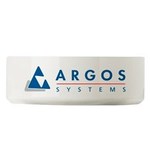Description

DataCAD

Envisioneer Home Design
Comprehensive Overview: DataCAD vs Envisioneer Home Design
DataCAD
a) Primary Functions and Target Markets:
-
Primary Functions:
- DataCAD is a professional-grade computer-aided design and drafting software aimed primarily at architects and designers. It offers a range of tools for 2D and 3D design, focused on architectural detailing, drafting, and presentation.
- The software supports Building Information Modeling (BIM), allowing users to create comprehensive construction documents and visualizations.
- Key features include smart walls, doors, and windows, as well as rendering and viewing options to visualize designs accurately.
-
Target Markets:
- The primary target market for DataCAD includes architects, building designers, engineers, and construction professionals. It's particularly favored by small to medium-sized firms that need reliable and sophisticated tools for architectural design without overly complex interfaces.
b) Market Share and User Base:
-
Market Share:
- DataCAD does not have the extensive market share of major players like AutoCAD or Revit. It occupies a niche position, valued for its specific focus on architecture and ease of use in this domain.
- The software appeals to users looking for cost-effective solutions without sacrificing core architectural functionalities.
-
User Base:
- DataCAD maintains a dedicated user base within the architecture community. Its users appreciate the balance of price and functionality, and the software has a strong presence among traditional architectural practices.
c) Key Differentiating Factors:
- Ease of Use: DataCAD is often praised for its user-friendly interface, which is less complex than some of the larger, more expensive alternatives. This makes it particularly appealing to users who need to produce detailed architectural work without a steep learning curve.
- Cost: DataCAD is generally more affordable compared to some of the more dominant CAD software solutions, making it an attractive option for small and medium-sized firms.
- Customization and Specific Tools: The software provides specific tools tailored for architecture, which might not be as emphasized in more general CAD software.
Envisioneer Home Design
a) Primary Functions and Target Markets:
-
Primary Functions:
- Envisioneer Home Design is a software application designed to facilitate home design projects. It is oriented more towards residential design, allowing users to draft floor plans, elevations, and 3D visualizations.
- It includes tools for interior and exterior design, landscape planning, and material selection. The software also provides integration options for energy analysis and home building project management.
-
Target Markets:
- The primary target market for Envisioneer Home Design includes home builders, remodelers, interior designers, and DIY enthusiasts. It's designed for users who need a dedicated solution for all aspects of home design in a residential context.
b) Market Share and User Base:
-
Market Share:
- Envisioneer competes in the residential design software market alongside competitors like Chief Architect and SketchUp. It tends to have a smaller market share compared to these larger names but remains competitive by offering specialized home design features.
-
User Base:
- Envisioneer has a user base that spans home builders, amateur designers, and professionals who focus exclusively on residential projects. It's popular among those who need an intuitive platform specifically for home design.
c) Key Differentiating Factors:
- Focused on Residential Design: Unlike more generalized CAD software, Envisioneer is specifically designed for residential projects, featuring tools and libraries pertinent to home building and remodeling.
- User-Friendliness: The software is designed to be accessible to non-professional users, which broadens its appeal to DIY homeowners and hobbyists looking to undertake personal renovation projects.
- Integration with Building Resources: Envisioneer provides links to building resource management and energy analysis tools, helping users plan more efficient and sustainable home designs.
Conclusion
While DataCAD and Envisioneer Home Design both reside in the CAD software ecosystem, they serve different purposes and markets. DataCAD is more oriented toward professional architecture with an emphasis on 2D and 3D drafting for small to medium-sized firms. Envisioneer Home Design focuses on residential projects with tools tailored for homebuilders and remodelers. Their differentiation, user focus, and ease of use cater to specific segments within the design industry.
Contact Info

Year founded :
Not Available
Not Available
Not Available
Not Available
Not Available

Year founded :
Not Available
Not Available
Not Available
Not Available
Not Available
Feature Similarity Breakdown: DataCAD, Envisioneer Home Design
When comparing DataCAD and Envisioneer Home Design, two well-known software applications in the field of architecture and home design, several factors come into play. Although both applications serve similar markets, they have particular features and user interfaces that may appeal differently to users.
a) Core Features in Common
-
2D Drafting and 3D Modeling:
- Both applications provide comprehensive tools for creating 2D drafts and transitioning them into 3D models. Users can design floor plans, create elevations, and view their designs in a three-dimensional space.
-
Rendering Capabilities:
- DataCAD and Envisioneer both offer rendering tools that enable users to visualize projects with realistic lighting, textures, and materials.
-
Component Libraries:
- Both programs include libraries of architectural components like windows, doors, furniture, and materials, which users can insert into their designs.
-
Customization and Templates:
- Users can start projects using pre-designed templates or customize their designs from scratch. Both software provide options to customize settings to fit specific project requirements.
-
Collaboration Tools:
- Both have features that support team collaboration, enabling multiple users to work on the same project with tools for commenting and version control.
b) User Interface Comparison
-
DataCAD:
- DataCAD's interface is more traditional and may seem complex for beginners but robust for experienced users. It follows a CAD standard with numerous toolbars, customizable options, and command-line utilities that offer flexibility and precision to professional architects.
-
Envisioneer Home Design:
- Envisioneer offers a more user-friendly and intuitive interface, often preferred by those who are new to home design software. It has a more visually-driven interface with drag-and-drop features, clearly labeled icons, and a simplified menu layout, catering to a broader audience, including DIY enthusiasts and professional designers.
c) Unique Features
-
DataCAD:
- Precision CAD Tools: DataCAD is known for its detailed CAD capabilities and precision in creating architectural drawings which make it more suitable for professional architects who need detailed construction documentation.
- Batch Plotting and Automation: It offers advanced plotting options and automation features that can streamline documentation processes for larger projects.
-
Envisioneer Home Design:
- VR Integration: Envisioneer offers virtual reality capabilities which allow users to experience their designs in an immersive 3D environment.
- BIM Features: It includes Building Information Modeling (BIM) elements for creating intelligent 3D models, useful for integrated project delivery and collaboration.
In summary, while both DataCAD and Envisioneer Home Design cover essential design and modeling aspects necessary for architecture and home design, they target slightly different user bases with their unique features and interfaces. DataCAD's strength lies in its precise CAD capabilities aimed at professionals, while Envisioneer leans towards a more versatile and accessible approach with its user-friendly interface and innovative features like VR and BIM integration.
Features

Not Available

Not Available
Best Fit Use Cases: DataCAD, Envisioneer Home Design
DataCAD and Envisioneer Home Design are both valuable tools in the architectural and design space, but they cater to different needs and project types. Below is a breakdown of their best-fit use cases:
a) For what types of businesses or projects is DataCAD the best choice?
-
Architectural Firms: DataCAD is a professional architecture software primarily designed for architects and similar design professionals. Its powerful tools focus on architectural drafting, with an emphasis on creating detailed construction documents and technical drawings.
-
Engineering Firms: Its robust set of features, including 2D and 3D modeling capabilities, make it a great fit for engineering firms that need precise drafting tools for structural, mechanical, and civil projects.
-
Large-Scale Commercial Projects: DataCAD's ability to handle complex and large-scale projects makes it ideal for commercial architecture. Its customization options and comprehensive libraries facilitate the creation of detailed plans for large buildings and developments.
-
Customization and Scripting: Businesses that require highly customized tools or workflows will benefit from DataCAD's support for custom macros and scripting, allowing for tailored solutions to specific project needs.
b) In what scenarios would Envisioneer Home Design be the preferred option?
-
Residential Designers and Builders: Envisioneer Home Design is geared towards residential design and is ideal for projects focused on single-family homes, renovations, and small-scale residential developments.
-
Interior Designers: With a user-friendly interface and tools specifically for interior layouts and design elements, Envisioneer is perfect for interior designers who need to create detailed interior plans and presentations.
-
DIY Homeowners and Small Contractors: Its intuitive design makes it accessible to homeowners who wish to experiment with home design or to small contractors who need an easy-to-use tool for presenting ideas to clients.
-
Home Builders and Remodelers: The software is well-suited for builders who are focused on residential spaces and are looking for a comprehensive yet simplified tool to visualize and plan construction or renovation projects.
d) How do these products cater to different industry verticals or company sizes?
-
Industry Verticals: DataCAD is more suited for the architecture, engineering, and construction (AEC) industries, especially those involved in large-scale commercial projects. Its robust feature set caters to sectors requiring detailed and technical design capabilities. Meanwhile, Envisioneer is more aligned with the home building, remodeling, and interior design sectors, focusing on residential spaces and providing features that emphasize visualization and client presentations.
-
Company Sizes: DataCAD is often the choice for medium to large firms due to its comprehensive functionality that supports extensive project management needs and collaboration among larger teams. In contrast, Envisioneer is well-suited for small to medium enterprises, including solo practitioners, home-based designers, and small construction companies, due to its ease of use and affordability while still offering essential design capabilities for residential projects.
In summary, while DataCAD serves the architectural and engineering sectors needing detailed technical capability for larger projects, Envisioneer Home Design is optimal for residential and interior design focused applications, benefiting smaller firms and individual designers.
Pricing

Pricing Not Available

Pricing Not Available
Metrics History
Metrics History
Comparing undefined across companies
Conclusion & Final Verdict: DataCAD vs Envisioneer Home Design
When comparing DataCAD and Envisioneer Home Design, both are strong contenders in the architecture and home design software market, but they serve slightly different user bases and needs. Evaluating which offers the best overall value involves examining several factors, including features, ease of use, price, and the types of projects best suited for each.
a) Considering all factors, which product offers the best overall value?
Envisioneer Home Design often presents the best overall value for home designers and enthusiasts looking for a user-friendly interface and a good balance of features for home design. It is particularly beneficial for users interested in interior design, remodeling, and creating detailed visualizations without requiring the complexity intended for professional architects.
For more technically demanding work, especially involving large-scale or complex structures, DataCAD may offer better value. It provides extensive CAD capabilities that are ideal for professional architects, engineers, and industry veterans who need a reliable tool for precise construction documentation and coordination.
b) Pros and Cons
DataCAD:
Pros:
- Precision and Detail: Offers high accuracy and robust drafting tools suitable for professional architecture projects.
- Customization: Supports extensive customization and scripting options, allowing users to tailor the software to specific needs.
- Industry Standard: Well-regarded within architectural and engineering circles, which ensures better compatibility with industry standards.
Cons:
- Complexity: The learning curve can be steep for beginners or those who are not familiar with CAD software.
- Cost: Generally more expensive than home design-focused software options.
- Requires Technical Knowledge: Best suited for users with technical backgrounds.
Envisioneer Home Design:
Pros:
- User-Friendly: Intuitive interface making it accessible to beginners and non-professional users.
- Affordability: Typically offers more budget-friendly pricing compared to professional-grade architecture tools.
- Visualization Tools: Strong in visualization with realistic rendering, which can be beneficial for presentations and personal projects.
Cons:
- Limited Advanced Features: May lack some advanced drafting features and precision tools needed for professional-grade architectural projects.
- Performance for Large Projects: May not perform as well with very large or complex designs as a more robust CAD program.
c) Recommendations for Users
-
For Professional Architects and Industry Users: If your work demands high precision, customization, and the ability to handle complex architectural drafting and documentation, DataCAD is likely the better choice for its comprehensive toolset and industry standard reliability.
-
For Home Designers and Enthusiasts: If you are more focused on designing and visualizing home spaces, particularly residential projects or interior designs, Envisioneer Home Design provides a more user-friendly, cost-effective option that delivers strong visualization capabilities without the steep learning curve of more technical CAD programs.
Ultimately, your choice should align with your needs and project requirements. If ease of use and visualization are your priorities, go with Envisioneer Home Design. If precision, detail, and professional features are critical, DataCAD would be more suitable. Considering one's specific use case and comfort with technical software can significantly influence which tool will provide the best value.
Add to compare
Add similar companies



